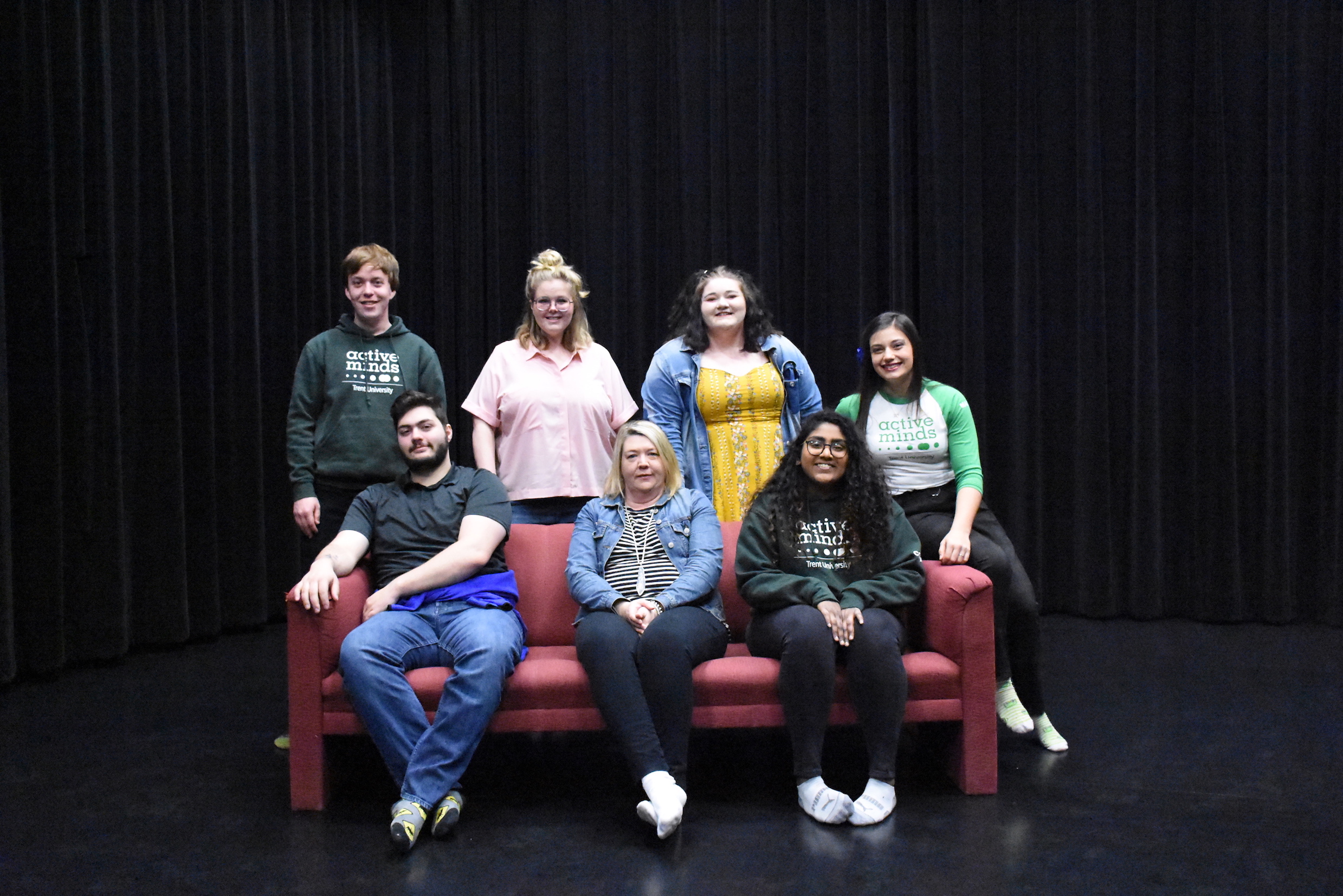
The Canadian Mental Health Association estimates that one in five Canadians will experience an issue with mental health or mental illness. Mental illness indirectly affects all Canadians, yet conversations about mental health are often neglected due to the stigma surrounding mental illnesses.
On March 23, Trent Active Minds hosted a panel to discuss the stigma surrounding mental health, called “Mental Struggle [does not equal] Mental Weakness.” The event provided the opportunity for students, faculty, and guest speakers to share their experiences with mental health. It extended the discussion to include the audience, allowing guests to ask questions or provide comments throughout the panel. The event took place in Nozhem: First Peoples’ Performance Space and ran from 1:00 p.m. to 3:30 p.m. The event was open to the public and all were welcome to attend. The lineup of panelists featured Alexander Gastaldini, Danielle Cooper, Coralynne Crasto, Laya Collis, and Professor Kim English.
Gastaldini, a student and former Residence Life Don, was the first to speak on his ongoing struggle with mental health, addressing the fact that, though he still deals with daily obstacles, he has come a long way.
Next to speak was Cooper, the founder of Sarnia Speaks, a grassroots initiative that aims to educate others on important issues such as mental illness, addiction, grief, the #MeToo Movement, racism, gender identity, poverty, and more. Cooper discussed her turbulent journey with bullying, medication, and body image, explaining how “recovery, as we all know, is not linear.”
Coralynne Crasto, a student and Trent Active Minds Social Media Representative, discussed her lengthy journey with chronic pain, which was misdiagnosed by dozens of doctors. Crasto told the audience how she came to distrust doctors and ended up missing classes as a result of her pain. Crasto discussed her journey of moving to Canada to attend university, and how she is still trying to cope and manage her pain with the unconditional help of a friend.
After an intermission, Laya Collis, student and Peer Supporter, spoke about her struggle with mental illness — an eating disorder. Her family and her friends, Collis said, helped her get through the worst of it. Collis told the audience an encouraging piece of advice that her mother said to her: “Even if you have nothing, if you have love, you have something.”
Last but not least was Professor Kim English, a Trent/Fleming School of Nursing Faculty Member. English told the audience about her three children, and of the particular struggles of her third son, who is on the Autism Spectrum. Diagnosed with Asperger syndrome at a young age, English’ son struggled the most when he moved to Toronto to attend university, partly as a result of the lack of available support networks and resources for students. English addressed the need to change structures and create communities that support students, parents, children, and faculty.
Madi Colletti, the Outreach Coordinator for Trent Active Minds, said she was “excited to start a conversation about mental health challenges in a safe and supportive space.” Colletti was passionate about advocating for mental health, and aimed to deconstruct and dismantle the stigma surrounding mental illness with this panel.
“I worked to recruit a diverse panel consisting of student, faculty, and guest speakers to portray that we all have struggles, no matter who we are or where we come from. We have all been through different struggles in life, and we may have navigated the depths of these struggles alone for fear that no one would understand. I designed the panel to create a community of people who can come together and help each other understand so that the darkness of mental health struggles becomes a little bit brighter,” Colletti said.
Active Minds was founded in 2001 by Alison Malmon, after the suicide of her sibling, Brian Malmon. Active Minds at Trent was established in 2008, as a liaison between the student body and the services at Trent and in the community. Trent Active Minds’ goal is to “effectively change the conversation about mental health.”
